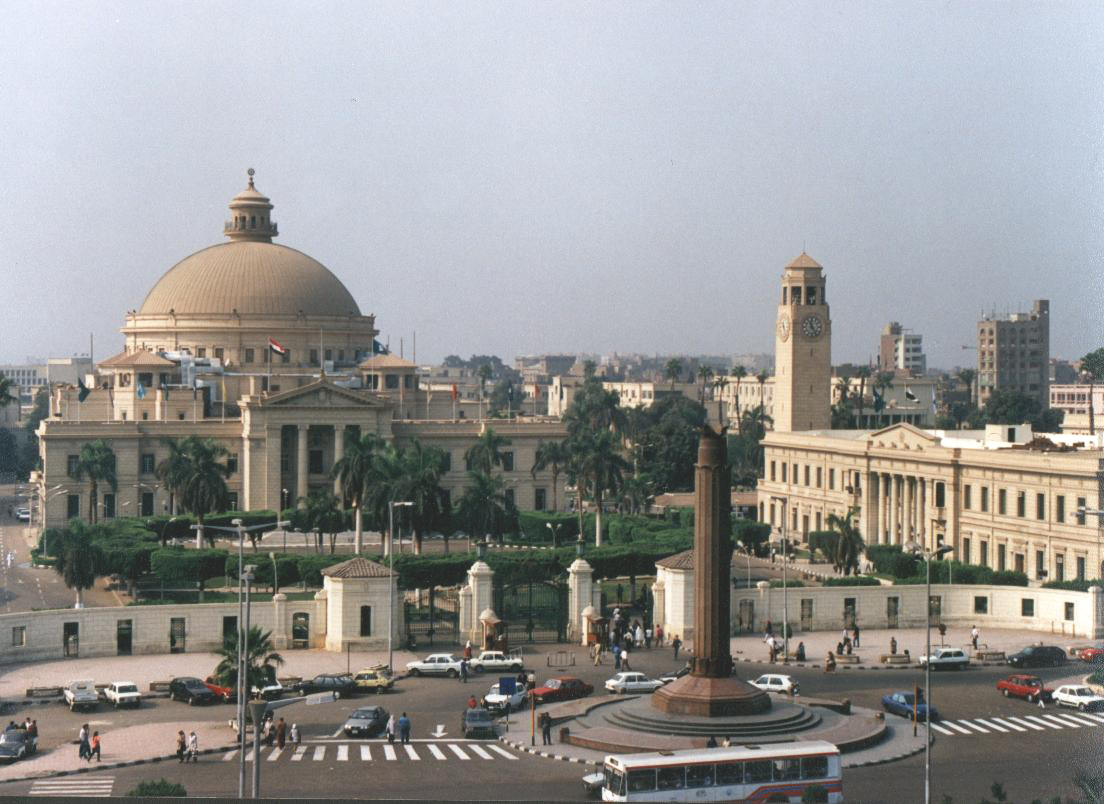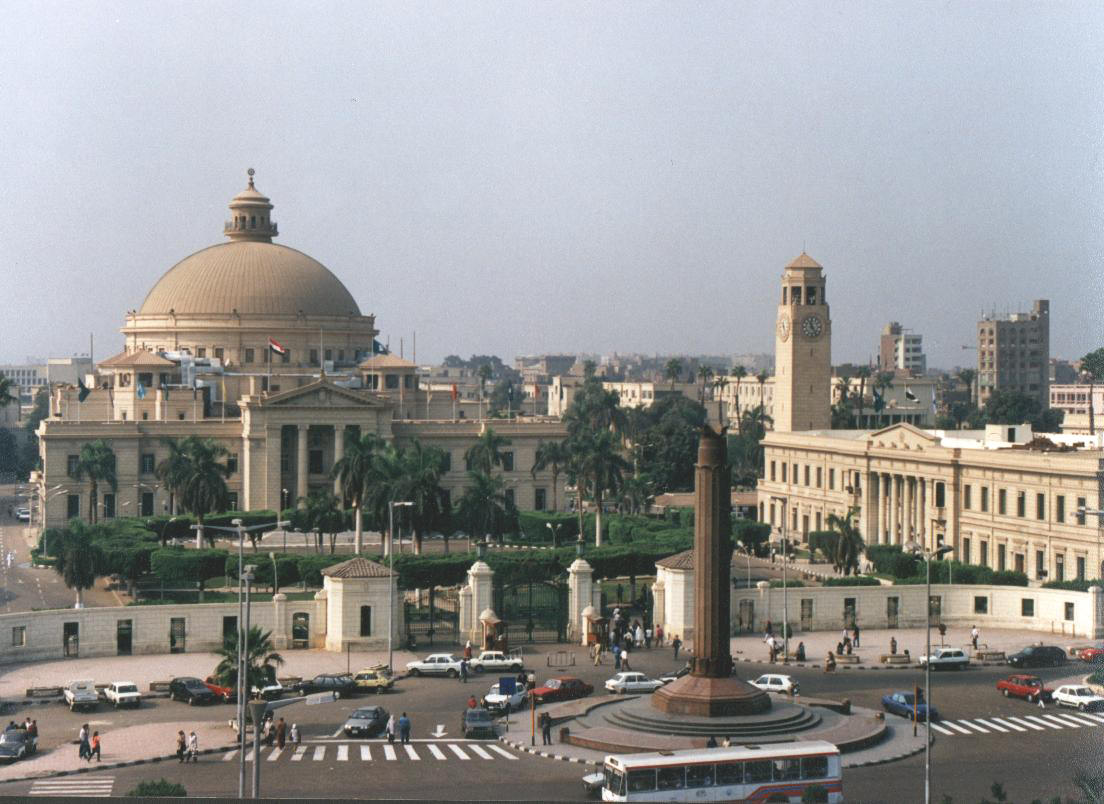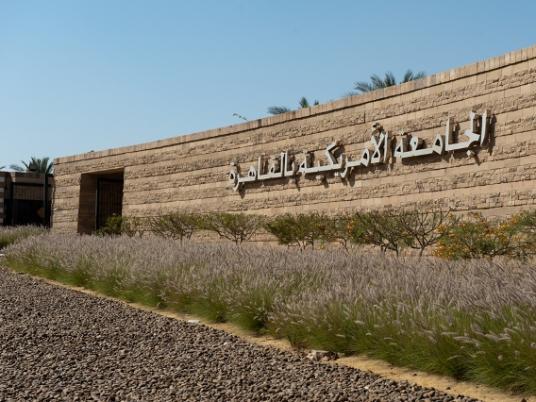A new Muslim Brotherhood (MB) student campaign has been launched under the name “The Reformers” to ostensibly show the “true face” of the younger ranks of the banned Islamic group–and the one-day-old campaign is already facing resistance by university authorities and state security police.
On Tuesday, students at Cairo University held a press conference to announce their new initiative. With microphones beaming into one of the university’s halls, the sounds of the young student leaders echoed with promises to reach out to all students, form alliances with other student groups and spread a message of peace.
“We created this campaign to explain to the [non-MB-affiliated] students who we are and what we want,” Taha al-Rantissy, head of Islahiyoun (“the Reformers”) at Cairo University told Al-Masry Al-Youm.
He denied that the newly established group was formed in reaction to the recently-aired television series “Al-Gamaa.”
“The idea has been in the pipeline for over a year now, and we’re only just starting to spread our message, which is an understanding of Islam as a civilized method for reform across all spheres,” al-Rantissy added.
“Al-Gamaa,” or “the Group,” is a TV series that was aired last Ramadan, which depicted the life of MB founder Hassan al-Banna. The series, which was partially sponsored by state-run television, lampooned the modern leadership of the Islamist group, showing its student ranks to be violent, confused and angry– in perpetual conflict with the police and their classmates.
Islam Abul-Fotouh, a former MB student leader and supporter of Islahiyoun, stressed that the new initiative was not a reaction to the TV series but merely a part of the political activity that has been rekindled in the run-up to parliamentary elections.
“The streets are active these days; it’s an interesting time,” he said. “Parliamentary elections, presidential elections–even student union elections–are all coming up very soon, and Islahiyoun will be there for two terms to spread awareness about all this.”
Al-Rantissy acknowledged, however, that “past mistakes” had added to the stigma associated with students affiliated with the MB, which has attracted many among the grassroots but has also alienated some people due to its exclusive nature and conservative approach to Islam and politics.
In December 2007, in a show of strength and as a form of protest, members and supporters of MB students at Al-Azhar University organized what was later termed a “militant show,” in which dozens of students convened on campus wearing black face masks and head bands bearing the words “We will stand firm.”
Some of them displayed their skills in martial arts and others held banners aloft decrying security intervention in student affairs. The act was also supposed to protest reported discrimination on the part of university authorities.
State security has used pictures taken by the press at the time as proof that the Islamist group was covertly training militias.
“We all make mistakes of course. We’re young,” said al-Rantissy when asked about the incident. “But this is what we’re trying to avoid now, and we want to hear from students in order to improve. We’re ready to talk with anyone, including Copts, with whom we would like to work, and students belonging to other trends. Everyone.”
Islahiyoun’s schedule is already full: they have scheduled a peaceful march, student galleries, a student-published booklet, a student magazine, and events promoting the MB, in addition to a short film–which they produced and performed–portraying the funeral of Hassan al-Banna and his “assassination.”
“The TV soap opera ‘Al-Gamaa’ had 28 episodes in which Hassan al-Banna’s death was not shown,” he said. “So we will stage it, produce a film, and screen it. We’ll call it the missing ‘29th episode’ of ‘Al-Gama’a’ [as a snub to the show].”
The students will also participate in student union elections, where MB contenders in the past have often been clamped down upon by state security police and allegedly harassed by university authorities. “We will have a Facebook group with all the details of the elections very soon,” he said.
But the young campaign is already facing hurdles across universities. At Alexandria University, 11 students were dismissed for belonging to the campaign, while physical clashes have taken place between Islahiyoun organizers and campus security at Munoufiya University.
“Only this morning, a gallery promoting the brotherhood was closed down by the dean,” said el-Rantissy.
Although banned since 1954, the MB managed to win 20 percent of the seats in Egypt’s lower-house of parliament in 2005, forming the biggest opposition bloc against the ruling National Democratic Party of President Hosni Mubarak. The group is also popular among the grassroots for its charity and development work.
According to Hala Moustafa of the semi-official Al-Ahram Center for Political and Strategic Studies, the domain of reform within the MB is not–and will not–contradict the group’s longstanding aim of Islamizing the state and applying Islamic law.
"All the talk and campaigns about reforming the MB are based on their main principles: implementation of Islamic law, the establishment of an Islamic state, and reviving the Islamic caliphate,” she said.
Human rights activist Emad Mubarak, executive director of the Foundation for Freedom of Thought and Expression, told Al-Masry Al-Youm that the MB generally used students to achieve political goals.
"Despite some differences between the leadership of the MB and the students affiliated with the group, the leadership maintains direct and tight control over MB-affiliated students," said Mubarak, who closely follows student activism on Egyptian university campuses.
Asked about the timing of the nascent student campaign, Mubarak sees it as being inspired and planned by the group leadership. "These student activities are part of a wider process with the main group itself,” he said.
Mubarak argues that, unlike a few years ago when students affiliated with the MB supported alternative student elections, they are now obeying the leadership’s orders not to participate in alternative elections.
Additional reporting by Ahmed Zaki



